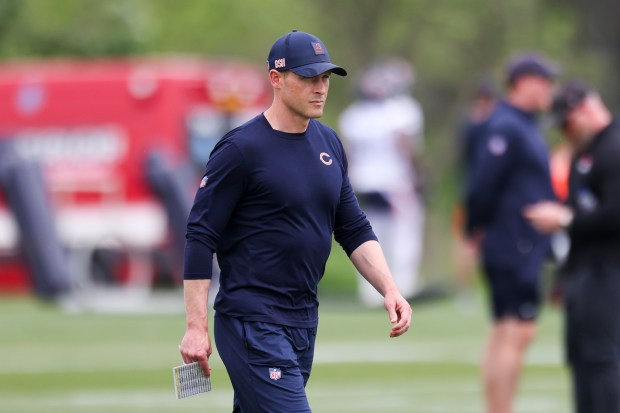As one who sympathized and empathized with President Joe Biden, I was relieved when he decided to step aside for a younger generation of presidential contenders.
Seeing the unmitigated joy — and relief — that seemed to erupt nationwide, suddenly I, too, decided to take a symbolic step toward semiretirement just in time for this year’s Democratic National Convention in Chicago.
The thought became more real as the friends and well-wishers gathered at Rainbow/PUSH this past weekend to celebrate 40 years since the organization’s founder, the Rev. Jesse Jackson, delivered the “Rainbow Coalition” speech that outlined themes that would later shape the Democratic Party platform.
I remember that speech. I was just beginning my career at the Chicago Tribune. Little did I know I would later cover the Black Panthers, Harold Washington’s election as the city’s first Black mayor and, among other adventures, the election of Barack Obama as the nation’s first Black president.
As the Grateful Dead used to sing, “What a long, strange trip it’s been.”
Now, it seems, the sun has come out and the world reminds me of the theme song from “Annie,” although I won’t try to sing it for you.
I’m far more intrigued by how much it now has become Donald Trump’s age and health that are getting more scrutiny. Remember how the former president in mid-July mockingly offered to accompany Biden to a doctor’s office to take a “unity” cognitive test?
No such talk now. Ironically, Biden’s withdrawal instantly turned Trump’s big age advantage into a liability. As the oldest presidential nominee in U.S. history, if Trump wins in November he will end his term just short of his 83rd birthday, making him two years older than Biden is now.
Suddenly Biden’s age problem has become Trump’s age problem. Will media and Republican leaders treat Trump’s age concerns as seriously as they did in Biden’s case?
I already have — and I’m not alone.
Trump asked for that when he made issues of age and appearance — and precious little substance — the subject of more airtime than they otherwise might have deserved,
Now that the deeply unpleasant schoolhouse-bully side of Trump’s personality gets nudged into center stage, even his own advisers see the barely hidden dangers.
Since replacing Biden in late July, Harris rallies draw crowds so enormous that Trump’s campaign has accused her campaign of faking the crowds with AI, a notion knocked down by media and other witnesses.
Deposed House Speaker Kevin McCarthy, a California Republican, urged Trump to stop grumbling about the size of Harris’ crowds and focus instead on policy. Similarly, says former primary rival-turned-supporter Nikki Haley, Trump isn’t likely to win talking about Harris’ race or whether she is “dumb,” a card that Trump has pretty much worn out through excessive use.
As Republican pollster Frank Luntz observed in a CNN interview, “If it’s about issues,” he said, “Trump is much more likely to be successful.”
Polling by The New York Times/Siena College, for example, showed her up 4 points in three battleground states — Michigan, Wisconsin and Pennsylvania.
And this good news for Harris’ campaign comes, it’s significant to remember, after the doldrums that the Biden campaign suffered through before Biden stepped aside.
Trump has not been taking it well. He’s been calling Harris “nasty,” a word he used to reserve pretty much for the likes of Hillary Clinton, who’s expected to be celebrating with fellow Democrats at the party’s convention.
For now, I appreciate Biden’s relentless spirit, but I also need a break. I don’t have to be dragged, kicking and screaming into retirement. A nice beer and bratwurst on the beach is good enough for me.
But I’m not quitting journalism. I plan to cut my columns in half from two per week to one, and if all works out well enough, I’d like to explore some of these new media that my son has tried to explain to me.
The gadget they call YouTube sounds interesting.
As they used to say in the days of the old media, stay tuned.



